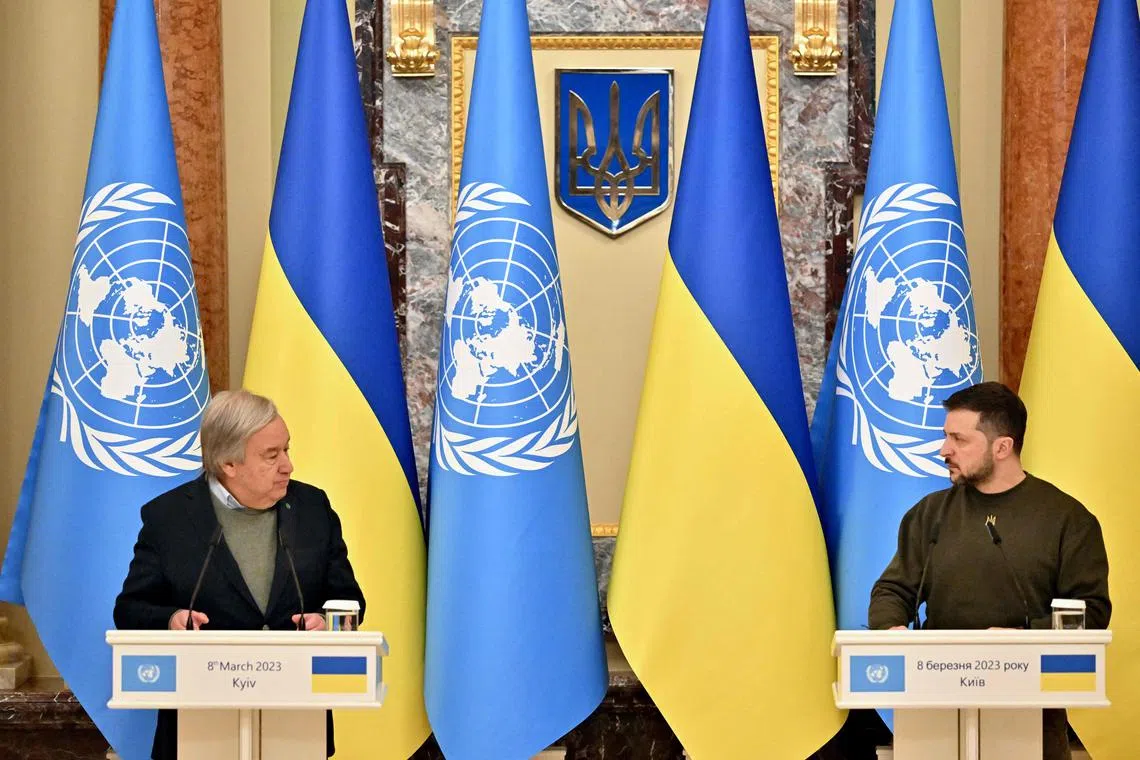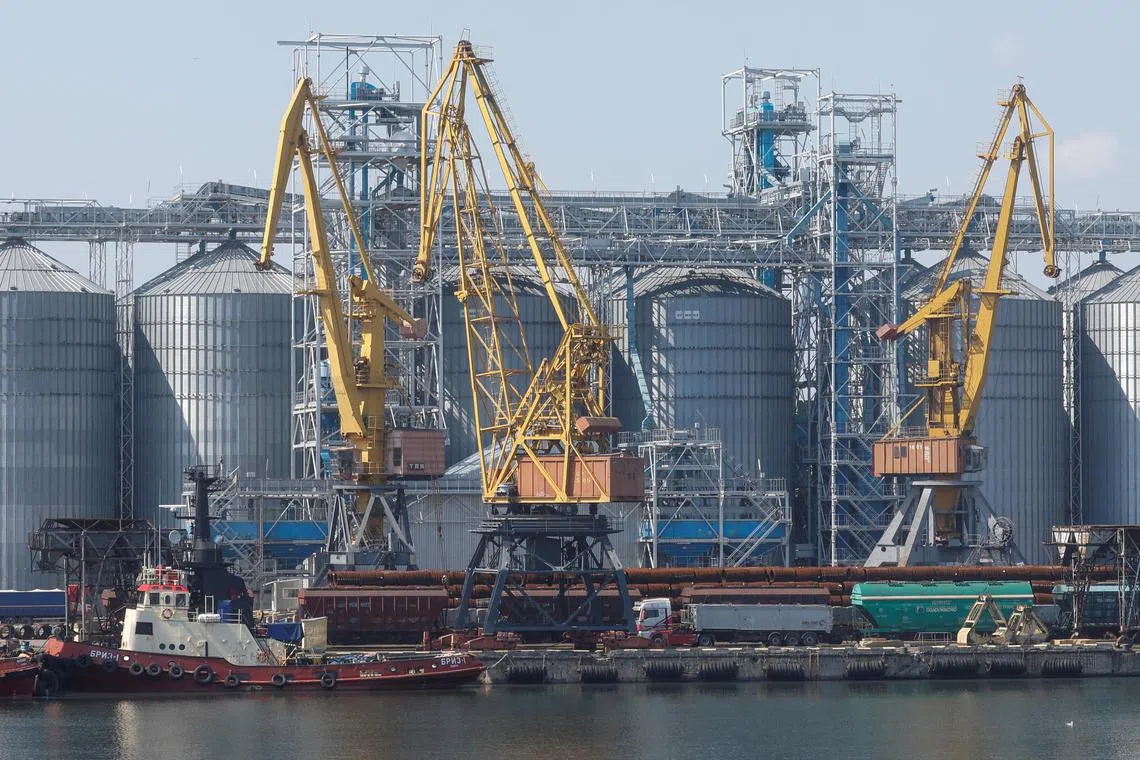Ukraine, UN call for extension of Black Sea grain export deal
Sign up now: Get ST's newsletters delivered to your inbox

United Nations' Secretary-General Antonio Guterres (left) and Ukrainian President Volodymyr Zelensky give a joint statement following their meeting in Kyiv, on March 8, 2023.
PHOTO: AFP
KYIV - Ukraine’s President Volodymyr Zelensky and United Nations Secretary-General Antonio Guterres called on Wednesday for the extension of a deal with Moscow that has allowed Ukraine to export grain via Black Sea ports during Russia’s invasion.
Mr Zelensky said after talks with Mr Guterres in Kyiv that the Black Sea Grain Initiative was “critically necessary” for the world, and the UN chief underlined its importance to global food security and food prices.
The 120-day deal, initially brokered by the United Nations and Turkey last July
Russia’s demands, however, have not yet been met, a Turkish diplomatic source said, adding that Ankara was “working very hard” to ensure the deal continues.
Top UN trade official Rebeca Grynspan, who travelled with Mr Guterres to the Ukrainian capital, will meet senior Russian officials in Geneva next week to discuss extending the deal, a UN spokesman said.
“I want to underscore the critical importance of rolling over the Black Sea Grain Initiative on March 18 and working to create the conditions to enable the greatest possible use of export infrastructure through the Black Sea in line with the objectives of the initiative,” Mr Guterres told reporters in Kyiv.
Russia, which lifted a blockade of three Ukrainian Black Sea ports under the deal, has signalled that obstacles to its own agricultural exports need to be removed before it lets the agreement continue.
To help convince Russia to allow Ukraine to resume its Black Sea grain exports, a three-year deal was struck last year in which the UN agreed to help facilitate Russian food and fertiliser exports.
Sanctions
Western powers have imposed tough sanctions on Russia for its invasion of neighbour Ukraine on Feb 24 last year.
While Russia’s food and fertiliser exports are not subject to sanctions, Moscow says restrictions on its payments, logistics and insurance industries are a “barrier” to such shipments.
“Russia’s concerns, or the rather the difficulties that it is facing, have not been overcome yet. But Turkey is doing its part for an agreement between all parties,” the Turkish diplomatic source said.
Ukraine and Russia are both major global suppliers of grains and fertilisers. Before the war, Ukraine was the world’s fourth-largest corn exporter and fifth-biggest wheat seller, a main supplier to poor countries in Africa and the Middle East that depend on grain imports.

A grain terminal in the Ukrainian sea port of Odesa, in August 2022.
PHOTO: REUTERS
Ukraine has so far exported more than 23 million tonnes of mainly corn and wheat under the deal, according to the United Nations. The top primary destinations for shipments have been China, Spain, Turkey, Italy and the Netherlands.
Mr Zelensky said he and Mr Guterres, who was visiting Kyiv for the third time since the invasion, also discussed security issues and the safety of the Zaporizhzhia nuclear power station, which is occupied by Russian forces.
Mr Guterres said security around the Zaporizhzhia plant in southern Ukraine was vital and that the UN was trying to help.
The UN nuclear watchdog has monitors at what is Europe’s largest nuclear power station and has been pressing both sides to establish a demilitarised “safe zone” around it. REUTERS


